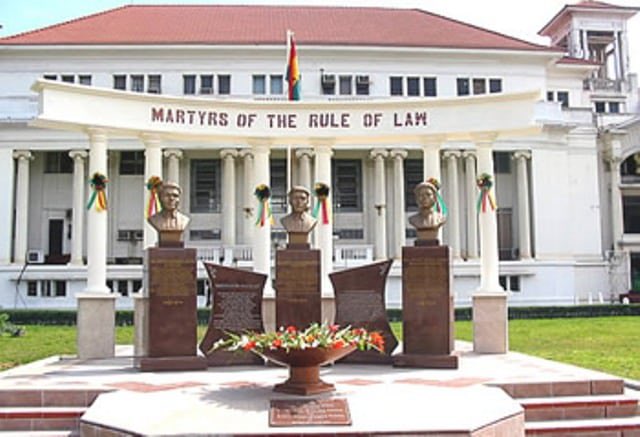The Supreme Court upheld a law criminalizing unnatural sexual intercourse, affirming its constitutionality.
On July 24, 2024, a seven-member panel unanimously dismissed a challenge to Section 104(1)(b) of the Criminal Offences Act, 1960 (Act 29), which criminalizes sexual intercourse in an unnatural manner, even between consenting adults. Consequently, individuals aged 16 and above who engage in unnatural carnal knowledge, even with consent, commit a misdemeanor punishable by up to three years in prison.
A law lecturer at the University of Ghana, Dr Prince Obiri-Koranginitiated the challenge. He contended that Section 104(1)(b) violated Article 14(1) of the 1992 Constitution by depriving homosexuals of the liberty to choose their intimate partners and engage in private sexual conduct without state interference.
Additionally, he argued that it infringed upon Article 18(2), concerning privacy, and Article 17(2), which prohibits discrimination based on sexual orientation.
However, the Supreme Court, led by Justice Paul Baffoe-Bonnie, found the suit to be without merit and dismissed it.
The detailed reasoning for the decision will be available at the court’s registry within 10 days. The panel included Justices Avril Lovelace Johnson, Issifu Omoro Tanko Amadu, Emmanuel Yonny Kulendi, Ernest Gaewu, Yaw Darko Asare, and Richard Adjei-Frimpong.
Section 104 of Act 29 divides into three parts:
- Section 104(1)(a) criminalizes unnatural carnal knowledge of a person under 16, a first-degree felony punishable by 5 to 25 years in prison.
- Section 104(1)(b) criminalizes unnatural carnal knowledge between consenting adults, the provision challenged by Dr. Obiri-Korang.
- Section 104(1)(c) makes bestiality a misdemeanor.
Finally, Section 104(2) defines unnatural carnal knowledge as sexual intercourse in an unnatural manner or with an animal, though the Act does not explicitly define “unnatural manner.”
Thus, this law, which applies to both heterosexuals and homosexuals, prohibits anal sex.
Source: Graphiconline







